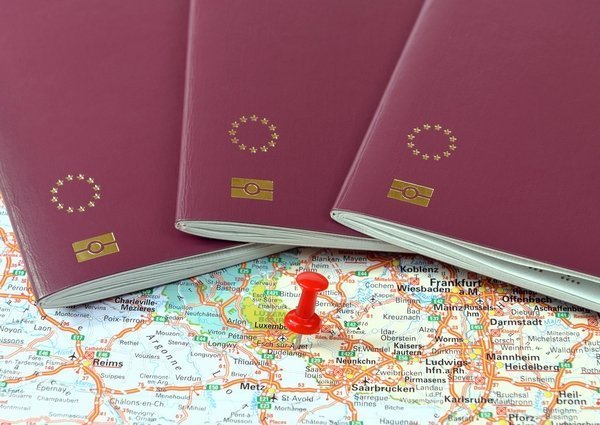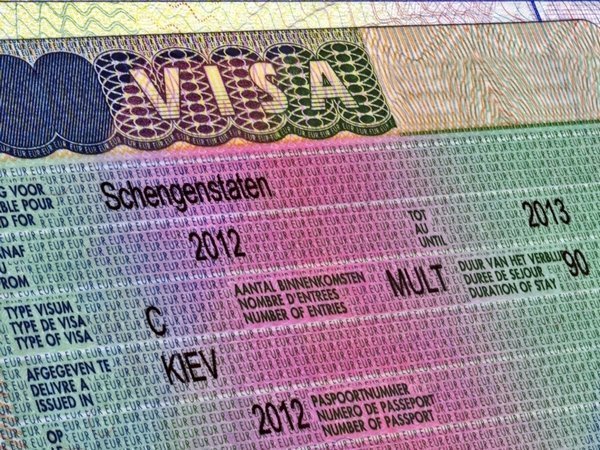The Schengen visa: information and fees
The Schengen visa enables its holders to enter and travel through the 26 countries of the Schengen zone. It is delivered by embassies and consulates in the applicant’s home country.
26 countries are members of the Schengen zone:
| Austria | Liechtenstein |
|---|---|
| Belgium | Lithuania |
| Czech Republic | Luxembourg |
| Denmark | Malta |
| Estonia | Netherlands |
| Finland | Norway |
| France | Poland |
| Germany | Portugal |
| Greece | Slovakia |
| Hungary | Slovenia |
| Iceland | Spain |
| Italy | Sweden |
| Latvia | Switzerland |
The Schengen zone is not the same as the European Union:
- some EU countries don’t accept Schengen visas (e.g., UK, Ireland, Cyprus, Bulgaria, Romania and Croatia).
- other non-EU countries are Schengen members (e.g., Iceland, Liechtenstein, Norway and Switzerland).
The Schengen agreement was signed in 1985 by five founding countries: Belgium, West Germany, Luxembourg, Netherlands and France that were later joined by the other 21 members. The aim of the agreement is to allow free movement of citizens across borders by abolishing control checkpoints.

Only certain nationalities need Schengen visas. The full list is not available from official sources but can be found on the website of French bank AXA. More information is on the website of the embassy of the Schengen destination.
Types, fees and validity
There are four types of visas: A, B, C and D. The most common is Type C,
| Type A* (airport transit visa) | Type B (transit visa) | Type C
( |
Type D (national visa) | |
|---|---|---|---|---|
| Purpose | For transit between terminals in one Schengen airport only (visa holder is not authorised to exit the airport) | Valid for 1–2 entries into the Schengen zone when travelling to |
Multiple entries into the Schengen zone | Long stays in the Schengen zone |
| Validity | Up to 48 hours | Up to 5 days | Up to 90 days during a period of 180 days | More than 90 days in the country of primary residence and up to 90 days in other Schengen countries |
| Fee, EUR | 60 | 35 or 60** | 35 or 60** | 100 |
* Citizens of Afghanistan, Bangladesh, Democratic Republic of Congo, Eritrea, Ethiopia, Ghana, Iran, Iraq, Liberia, Nigeria, Somalia, Sri Lanka.
** €35 for citizens of Bosnia and Herzegovina, Georgia, Kosovo, Macedonia, Montenegro, Russia, Serbia and Ukraine; €60 for citizens of other countries.
Visas can be issued for one, two or multiple (unlimited) entries into the Schengen zone. These categories are indicated in the “number of entries” field in the visa as 01, 02 or MULT.
Visas can be extended under exceptional circumstances – personal, professional, medical and other reasons. In order to do so, the visa holder must apply for an extension to the authorities in the Schengen country they are visiting (e.g., in Germany, the Ausländerbehörde or Foreign Affairs Office). The visa can be extended for up to 10 days maximum.
Property owners are not guaranteed a visa, but can apply for Type C visa on private visit grounds.
Applying for a Schengen visa
Documents should be filed three months before the planned departure date but preferably no later than 15 days prior.
Required documents
- completed and signed visa application form (available on embassy website);
- passport with two blank pages, issued within the last 10 years and valid for at least three months after Schengen trip’s end date;
- copy of passport (first page and all visas);
- ID photos measuring
3.5 × 4.5 cm (check embassy information); - visa fee (
€35–100 depending on visa type); - medical insurance policy (minimum insurance cover of €30,000 valid in all Schengen countries for duration of the stay);
- children under 18: copy of birth certificate, permission to travel from parent/guardian, copy of valid Schengen visa of a parent travelling with the minor;
- signed authorisation to process personal data.
At the embassy
- biometric fingerprinting (not required for children under 12);
- digital photo of applicant.

Additional documents
Within the Schengen zone, countries may request specific documents for each individual application.
- Business travel: letter or written request (e.g., for members of a delegation – a letter confirming the status of the applicant; for employees – written request from the host party); entrepreneurs must provide tax declarations, trade or tax register excerpts, certificate of company registration and bank statements for three months
- Family visits: written request from the host party, confirmation of legal residence of the host party, proof of relation, personal income statement
- Study or internship: written request from the host party, letter of formal obligation or sponsorship
- Tourism and other purposes: payslips indicating salary and proof of funds; for property owners, extract from the property register or sales agreement, for tourists – proof of accommodation (e.g., hotel booking) and itinerary (e.g., air ticket)
Country-specific requirements: certain countries have additional requirements. The Austrian visa application requires proof that Austria will be the main country of stay during travel to the Schengen zone. In France, applicants visiting relatives who are residents must have the original official invitation (Attestation d’accueil) issued by the city hall (Mairie). However, a simplehand-written free-form invitation is enough for those visiting direct relatives (spouse, children, parents, grandparents). Information regarding the visa application and documents should be thoroughly reviewed before filing an application.
Border regulations and visa refusal
Multiple destinations
Schengen visas should be obtained from the embassy, consulate or visa centre of the primary country of destination. If the trip includes several destinations, the application should be made to the country where the applicant plans to stay the longest. If the trip includes equal time in each destination, the application should be made to the Schengen country of entry.
Validity of other Schengen visas
If there is another Schengen visa in the passport that expires before or starts after than the visa applied for, the new application is allowed and the previous visa will not be cancelled. Also, the existence of an unused Schengen visa does not mean that another application cannot be made.
Visa violations and refusal
It is important to check the dates of validity. If the visa holder violates the authorised dates of travel, they can be added to the deported persons’ database and banned from entering the Schengen zone later on. Visa applications can also be refused for breaking border regulations and improperly filed documents. When an application is refused, authorities stamp the passport with a letter (A, B, C or D) or a number (1, 2, 3 or 4). Letters stand for a type of visa requested and numbers for grounds of refusal.
When a visa is refused, a certain period of time (visa quarantine) may be determined. During this time the applicant cannot obtain a visa in Schengen countries consulates. Visa quarantine can vary from one month to ten years.
| No. | Reason | Further actions |
|---|---|---|
| 1 | Minor infractions (documents completed incorrectly, not enough information or suspicious information) | Correct mistakes in the documents and file a second application |
| 2 | Interview request to clarify application information | Attend an interview in person or answer the questions of the consulate by phone |
| 3 | Incomplete | File additional documents |
| 4 | Indefinite ban to enter the Schengen zone (serious violation on the territory of Schengen agreement countries) | File an appeal |
We will send you a content digest not more than once a week
